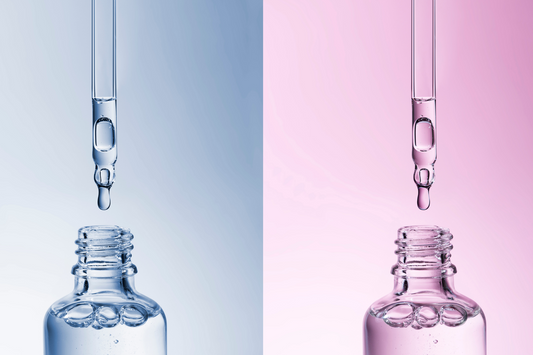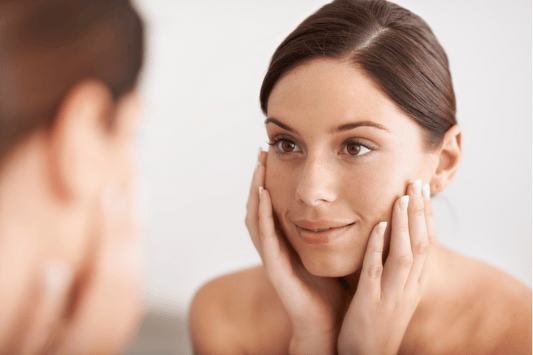The summer heat is here, which means it’s time to plan your trip to the beach! While you may already protect your skin and hair from sun damage, salt water is another factor to keep in mind when maintaining your hot girl summer hair.
Salt water can be more harmful to hair than you might think.
Ever wonder why your hair feels so dry and brittle after swimming at the beach? That’s because ocean water has a high salt content and drenching your hair in salt water for hours at a time can be extremely damaging to your hair.
Similar to your skin, your hair maintains its stretch and elasticity when it is hydrated. If hair is exposed to salt for a long period of time, a large amount of water will be pulled out of your hair, leaving it brittle and dry.
Remember learning about osmosis in your high school science class? Osmosis is basically the movement of water from a region of higher water concentration to a region of lower water concentration. This is what happens when you soak your hair in salt water.
The salt in ocean water draws out the moisture from your hair and dehydrates it during the osmotic process. Instead of getting beautiful beach waves, your hair can become dry, tangled, and dull. No wonder it’s so difficult to brush and detangle hair after a day at the beach!
Doesn’t sea salt spray help me get beach waves?
Yes, they do! Sea salt sprays are made to add volume and texture to your hair resulting in gorgeous, natural looking beach waves. The question is: How much sea salt spray is too much?
It’s best to use sea salt sprays in moderation. Frequent use of sea salt sprays is damaging to your hair since daily use of them has the same effect as the sea, or ocean, water at the beach.

So is salt water good or bad for my hair?
The answer is… both! Salt water is a good exfoliator and can help increase blood flow in the scalp. For those with naturally greasy hair, salt water can help remove excess oils and be a “natural shampoo.”
Although there are beneficial properties of salt water for hair, that doesn’t mean you should go crazy with the sea salt spray bottle. The average pH of sea water is about 8.1 which is not ideal for healthy hair, given that hair typically thrives in more acidic conditions. We recommend using hair products that are as close to your natural pH levels as possible — between 3.67 and 5.5 pH. Read more about why maintaining your hair’s pH level is important here.
As mentioned earlier, overexposure to salt water can cause hair damage and dehydration. If your hair has been dyed or chemically-treated, the damaging effects of salt water are even greater. Salt water can be both beneficial and destructive to your hair depending on your hair type and the overall condition of your strands.
Should I cancel my beach plans?
Don’t worry, there’s no need to bail on your friends this summer! Here are a few simple ways to reduce hair damage if you plan on dipping your hair in the salt water:
1. Presoak
Put those outdoor beach showers to good use. Showering or wetting your hair with clean water beforehand prevents your hair from absorbing more water. Think of your hair as a sponge — if it’s already full of moisture, there’s less space for salt water to be absorbed.
2. Keep your hair up
If possible, try to keep your head out of the water and tie up your hair. While a swim cap may not be the most stylish option, wearing one will keep your hair from getting wet as you swim.
3. Rinse it out
After a dip in the salt water, hit the shower and rinse out your hair with clean water. Even after you’re out of the water the salt continues to pull out moisture from your hair. Be sure to use a hydrating shampoo to wash away the chemicals and sea salt.
4. Deep condition
Use a leave-in conditioner after the shower to let your hair rehydrate. Don’t have a leave-in conditioner? Try a hair mask or make your own DIY hair mask with natural ingredients like eggs, avocado, and olive oil.
Enough about salt water. On a vacation to the tropics, you may notice that after your daily dip in the hotel pool, your hair feels incredibly dry and may even be tinted green. Curious as to why that happens? Read our full blog here about how chlorine interacts with your hair!
Fun Fact: It’s not chlorine itself that’s turning lighter hair green in pools.





